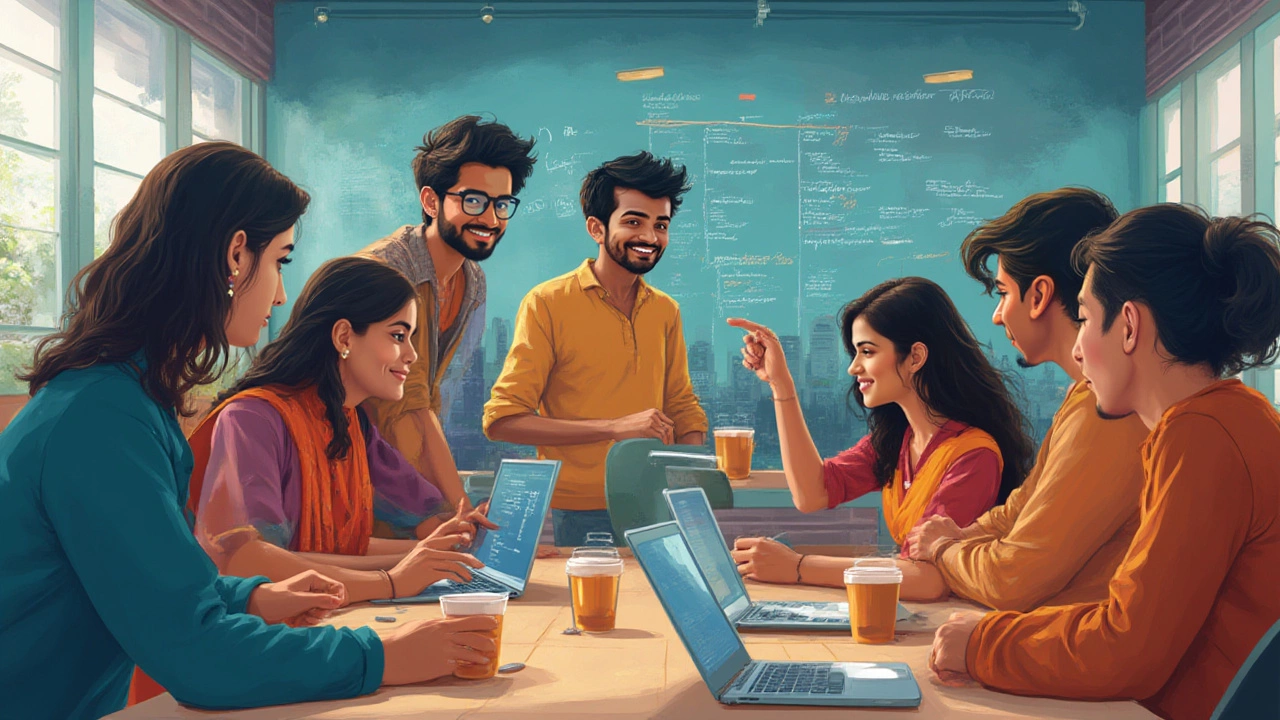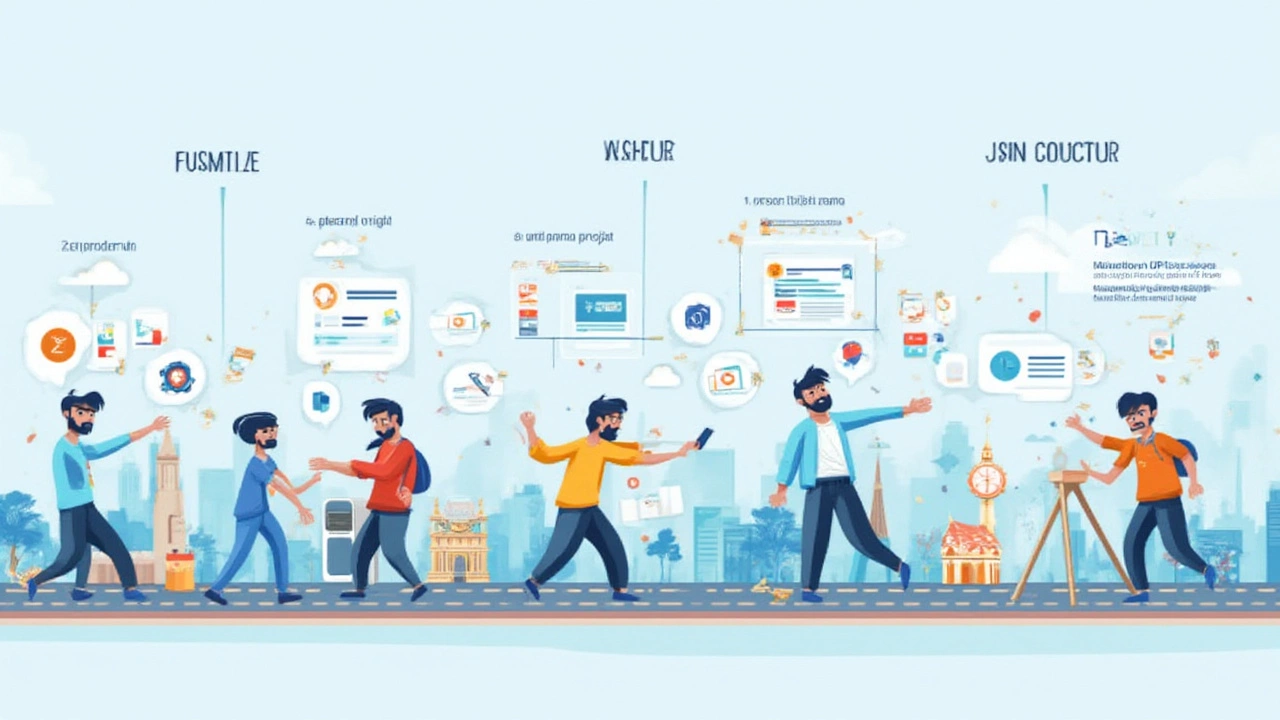Imagine building your own app a month from now. Or landing your first freelance job before the year ends. The idea sounds tempting, right? But when it comes to learning coding, everyone is desperate to know: how fast can I actually do it? There’s no one-size-fits-all answer, but that hasn’t stopped thousands from racing through JavaScript tutorials, binge-watching Python videos, and grinding through late-night coding sessions. Some bootcamps promise magic in a few months, others say mastery takes years. So, what’s real? Let’s tear apart the timelines, look at what really drives fast learning, and figure out what you can do today that moves the needle.
What Actually Decides How Fast You Can Learn Coding?
It’s easy to think coding is just about talent, age, or pure IQ. In reality, none of those tell the full story. Let’s break down the main factors that decide your coding speed.
- Time commitment: If you study coding every day for an hour, you’ll go much further than if you touch code just once a week. A survey by Stack Overflow found that beginners who coded daily reached basic job-ready skills in around 6-12 months.
- Learning style: Some crush YouTube crash courses, others need textbooks, a few swear by interactive platforms like LeetCode or Codecademy. The method you pick matters a lot for speed.
- Language & complexity: Learning HTML and CSS for websites is way faster than wrestling with C++ or algorithms. Even within coding, the starting line matters.
- Goals: Do you want to build simple websites, automate tasks, or break into software engineering jobs? Each path has a totally different timeline.
- Consistent practice: Regular, deep practice reduces forgetting. 15-20 solid hours a week beats 40 hours in one weekend.
- Community and feedback: Beginners learning in groups or communities (like Discord or Reddit r/learnprogramming) speed up thanks to faster answers and moral support.
- Past experience: If you’ve used Excel formulas or dabbled in script-based games as a kid, you’ll spot patterns and learn faster.
Think of it like this: learning coding is a lot closer to learning a sport than to memorizing facts. The more often you practice, the better you get—and you need to apply, not just read.
How Long Does It REALLY Take For Different Coding Goals?
There’s a huge difference between learning to code for fun and becoming job-ready. Here’s how long most people take for common milestones, based on real data and surveys from students, bootcamps, and self-learners:
| Goal | Language/Skills | Committed Time Per Week | Average Time Needed |
|---|---|---|---|
| Simple Website (HTML/CSS) | HTML, CSS basics | 5-10 hrs | 4-6 weeks |
| Interactive Website | HTML, CSS, JavaScript | 10-15 hrs | 2-3 months |
| Basic Automations | Python basics, scripting | 7-12 hrs | 2 months |
| Junior Developer Job | JavaScript, Python, React, basic algorithms | 15-25 hrs | 6-12 months |
| Software Engineer (Entry) | Algorithms, data structures, system design | 20-30 hrs | 1-2 years |
Notice the huge range? The truth is, you can build simple things pretty quickly—sometimes in weeks. Nearly half the people in a Codecademy student survey said they could make simple websites by the end of their first month. But landing serious tech jobs? That takes patience and regular action.
Self-taught developers who spend 10 hours per week usually report going from zero to job-ready in 9 to 18 months. Those with college or bootcamp experience—and who treat it like a full-time job—often get hired in just 4-8 months. Springboard, a bootcamp provider, claims 94% of grads land a tech job within 12 months.
Of course, actual results vary. If you’ve got loads of time, strong motivation, previous tech experience, or pick an easier language, you’ll be ahead of the curve. If you’re juggling kids, a day job, or struggle with focus, expect it to take longer (and that’s perfectly fine).

Quickest Ways to Learn Coding Efficiently: Tips That Actually Work
Want to learn coding fast, without burning out? Here’s what works for real humans, not just robots:
- Start with the simplest language and project possible. Python is popular for beginners because its syntax is clean and readable. Instead of reinventing Google, make a calculator or mini-game first.
- Use spaced repetition. Flashcard tools like Anki help you remember commands and concepts long-term.
- Apply ASAP. After every new topic, build something—even if it’s tiny. No one remembers a for-loop by reading about it. Try making it print your name 100 times.
- Learn with others. Join online study groups or Discord coding servers. Ask questions even if they sound “dumb.” You’ll be shocked how many others are stuck in the same spot.
- Mix video and hands-on learning. Watch a video, then switch to typing code yourself. Avoid 100% passive watching.
- Track your hours, not just tutorials. Set a timer, log your practice each week—a 2023 Harvard study found those who tracked real practice sessions progressed 30% faster.
- Don’t get trappped in tutorial hell. After a few lessons, try building your own version. Struggling is a sign of actual learning.
- Use challenges like Advent of Code or LeetCode for friendly competition and real problems.
The key isn’t doing everything, but picking the methods that make you excited to code more tomorrow than you did today.
Common Pitfalls That Slow Down Coding Learners
The road to learning coding is littered with mistakes that slow beginners down. Here are the top traps to dodge if you want to learn as fast as possible:
- Trying to learn five languages at once. You only need one to get started—pick Python or JavaScript and stick with it until you’re comfy.
- Giving up when you don’t understand something after the third try. It’s normal to wrestle with concepts for days or weeks. Google is your best friend here.
- Copy-pasting code without knowing what it does. Sure, it runs… but if you broke it down, could you fix or tweak it?
- Comparing yourself to "master coders" on social media. Ignore the noise. Your only real competition is who you were yesterday.
- Waiting for the perfect moment or perfect tutorial before you start. Just jump in and build (ugly) stuff. You’ll cringe at your old code someday; that’s progress.
- Binge-watching coding videos but never opening a code editor. Watching isn’t doing.
- Getting frustrated by bugs. Bugs are normal. Seasoned developers spend most of their time debugging; it’s where you level up, not a sign you’re failing.
- Building massive projects before mastering basics. Start with bite-sized projects, and scale up.
Every coder gets stuck, confused, and feels slow at times. The ones who get fast are the ones who keep showing up, even on rough days.

Turning Learning Into Earning: What’s After the First Few Months?
By your third or sixth month of regular coding, you’ve probably built little projects—maybe a mini-website or a basic script. What next?
- Open-source contributions: Coding on GitHub boosts confidence, gives feedback, and builds a network. Even small bug fixes count.
- Freelance gigs: Try a simple job on Fiverr, Upwork, or Toptal. Real-world coding forces you to stretch your skills.
- Hackathons: These online sprints teach teamwork, deadlines, and fast problems solving—crucial for real coding.
- Specialize: Once you get basics down, pick a path—front-end (what users see), back-end (server code), data science, game dev, mobile apps. Focusing speeds up progress.
- Show off your work: Build a portfolio site. Even two or three small projects give you an edge in interviews or freelance pitches.
- Network with other learners: Twitter/X, Reddit, and local meetups keep your journey fun—and help you find mentors.
Recent stats from LinkedIn say entry-level coding and software roles now make up more than 25% of new job posts in tech, and remote gigs are surging. That means even basic coding skills can start opening real, paid doors much faster than you might think—if you keep building, not just learning theory.
Never forget: anyone who’s fast at coding was slow once. The “secret” is showing up, every week, and building things that scare you just a little bit.



